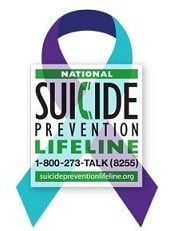Depression is a “whole-body” illness, involving your body, mood, and thoughts. It affects the way you eat and sleep, the way you feel about yourself, and the way you think about things. A depressive disorder is not the same as a passing blue mood. It is not a sign of personal weakness or a condition that can be willed or wished away. People with a depressive illness cannot merely “pull themselves together” and get better. Without treatment, symptoms can last for weeks, months, or years. Appropriate treatment, however, can help most people who suffer from depression.
The symptoms of depression may vary from person to person, and also depend on the severity of the depression. Depression causes changes in thinking, feeling, behavior, and physical well-being.
- Changes in Thinking – You may experience problems with concentration and decision making. Some people report difficulty with short term memory, forgetting things all the time. Negative thoughts and thinking are characteristic of depression. Pessimism, poor self-esteem, excessive guilt, and self-criticism are all common. Some people have self-destructive thoughts during a more serious depression.
- Changes in Feelings – You may feel sad for no reason at all. Some people report that they no longer enjoy activities that they once found pleasurable. You might lack motivation, and become more apathetic. You might feel “slowed down” and tired all the time. Sometimes irritability is a problem, and you may have more difficulty controlling your temper. In the extreme, depression is characterized by feelings of helplessness and hopelessness.
- Changes in Behavior – Changes in behavior during depression are reflective of the negative emotions being experienced. You might act more apathetic, because that’s how you feel. Some people do not feel comfortable with other people, so social withdrawal is common. You may experience a dramatic change in appetite, either eating more or less. Because of the chronic sadness, excessive crying is common. Some people complain about everything, and act out their anger with temper outburst. Sexual desire may disappear, resulting in lack of sexual activity. In the extreme, people may neglect their personal appearance, even neglecting basic hygiene. Needless to say someone who is this depressed does not do very much, so work productivity and household responsibilities suffer. Some people even have trouble getting out of bed.
- Changes in Physical Well-Being – We already talked about the negative emotional feelings experienced during depression, but these are coupled with negative physical emotions as well. Chronic fatigue, despite spending more time sleeping, is common. Some people can’t sleep, or don’t sleep soundly. These individuals lay awake for hours, or awaken many times during the night, and stare at the ceiling. Others sleep many hours, even most of the day, although they still feel tired. Many people lose their appetite, feel slowed down by depression, and complain of many aches and pains. Others are restless, and can’t sit still.
Now imagine these symptoms lasting for weeks or even months. Imagine feeling this way almost all of the time. Depression is present if you experience many of these symptoms for at least several weeks. Of course, it’s not a good idea to diagnose yourself.






